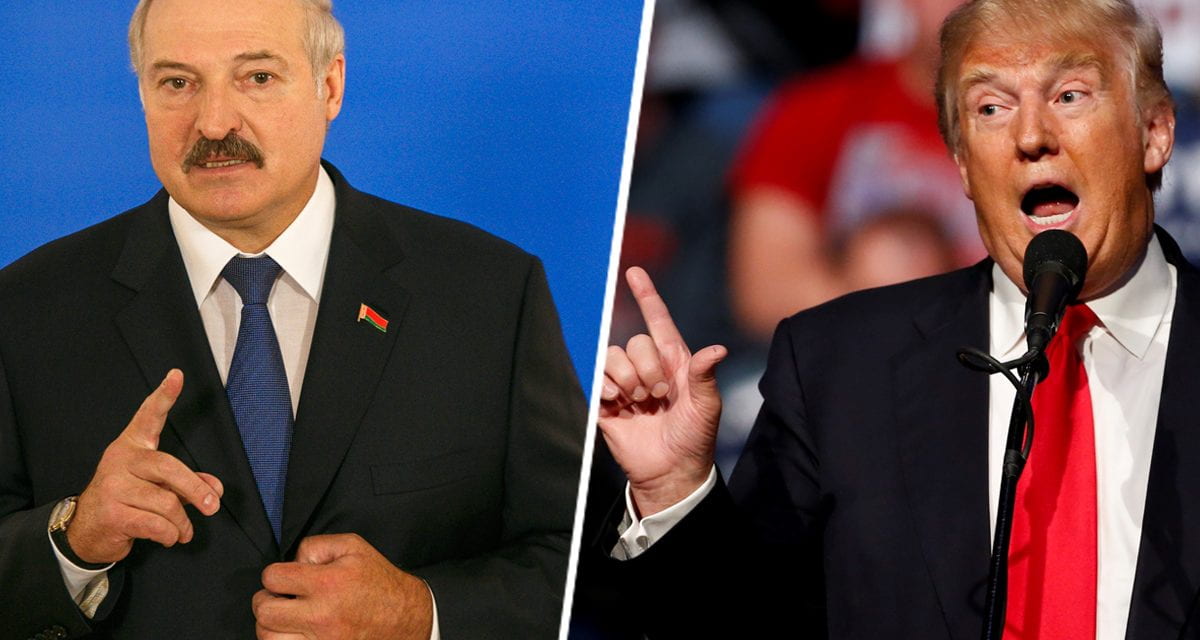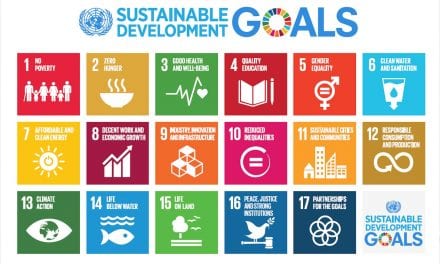Backsliding: Autocracy Rising
For the last twenty-six years, Alexander Lukashenko has served as President of Belarus. Although originally constrained to two five-year terms, Lukashenko has used illegitimate constitutional referendums to heighten the executive power immensely. Nearly three decades later, Lukashenko’s presidency has been met with strong opposition, both internationally and domestically. Following the widely-disputed August 2020 election, in which Lukashenko secured eighty percent of the vote, mass protests of 100,000 demonstrators have become regular occurrences in the capital, with some Sunday demonstrations reaching north of 200,000. [1] Despite alarming inconsistencies between voter turnout and the final tally, Lukashenko has ardently defended the legitimacy of the August 9th result. Since the election, Belarusian police have “cracked down brutally on protestors” with “truncheons, rubber bullets, and stun grenades,” and have detained upwards of 10,000 people, with over seventy being “declared political prisoners.”[2]
In response, the European Union, the United States, Canada, and the United Kingdom have imposed “asset freezes and travel bans” on Lukashenko, his son, and multiple senior officials in the Belarusian government. [3] In a heavy rebuke following the August election, the U.S. State Department issued a statement which said, “The United States cannot consider Alexander Lukashenko the legitimately elected leader of Belarus.” Officials from the European Union and the German government have also decried Lukashenko’s claim to the presidency.[4] However, this electoral turmoil is hardly confined to Belarus. Illiberal regimes are emerging with rapidity, and leaders of democracies are flirting with despotic language. As we near November 3rd, Americans must consider more than just domestic implications when pulling the lever. In addition to President Trump’s persistent assault on the integrity of the 2020 election, his repeated refusals to commit to a peaceful transition of power must be regarded as the foremost threat to American legitimacy abroad.
An Authoritarian Empowered
Prior to gaining independence, Belarus (previously Byelorussian SSR) was under the command of the Soviet Union and its Premier. On August 25, 1991, Byelorussian SSR declared its independence from the Soviet Union, and changed its name to the Republic of Belarus.[5] In 1994, Belarus formally adopted its first Constitution, which through its provisions for the separation of powers and the rule of law, created fertile ground in which democracy could plant its roots.[6] In the 1994 presidential election, Lukashenko took over eighty percent of the vote, and became the first President of Belarus.[7] After only ten months in office, Lukashenko began stretching the limits of his constitutional authority. On April 11th, 1995, he brought four issues out for referendum, all of which were to be voted on alongside that year’s parliamentary elections. Parliament rejected all but one, which is unsurprising considering that one of Lukashenko’s proposals for example, would have allowed the President to dissolve parliament and hold early elections.
Although he was the official head of state, Lukashenko’s constitutional amendments still required approval from the Constitutional Court, which “unambiguously ruled that the results of the planned referendum could be only advisory, not mandatory.”[8] In November 1996, Lukashenko held another constitutional referendum. This time however, he decreed the results as legally binding, directly contradicting the Court. Shortly thereafter, Belarusian MPs launched an impeachment against Lukashenko. To resolve the resulting crisis, officials from the Russian government met with Lukashenko and the Court’s head. Lukashenko agreed to renounce his decree in exchange for the dismissal of impeachment procedures. However, the 1995 elections resulted in a Parliament that was sympathetic to Lukashenko, allowing him to rip up the agreement, dismiss the impeachment effort against him, and move forward with his planned referendum. The referendum passed with 70.5% of voters approving. Vested with the ability to limit the Court’s power, dissolve Parliament, appoint legislators, extend the President’s term, and rule by decree, Lukashenko’s power was near-absolute.[9] This referendum was regarded internationally as unconstitutional, casting illegitimacy upon Lukashenko’s rule from the get-go.
The Disputed Executive
Since then, Lukashenko’s power has only gotten stronger. In 2004, he held another illegitimate referendum, resulting in the abolition of constitutionally-established term limits. Despite this being directly prohibited by Article 112 of Belarus’ Electoral Code, which prohibited issues “connected with [the] election and dismissal of the President” from being brought out to referendum, the Lukashenko-appointed legislature and judiciary remained silent.[10] Since then, the elections of 2006, 2010, 2015, and 2020 have come and gone, with Lukashenko never garnering below 75% of the vote. However, these elections were fraught with issues of electoral integrity, particularly in “the counting of votes and tabulation of electoral results.”[11]
Following the August 2020 election, which “the U.S and its European allies have said was neither free nor fair,”[12] Lukashenko secured his sixth term in office. Prior to the result, opposition candidates were victim to “intimidation tactics,” and were stonewalled from appearing on ballots. “[L]ocal independent observers” were prohibited from polling stations, and peaceful protestors and journalists were, and continue to be, detained without process.[13] Svetlana Tikhanovskaya, the leading opposition candidate, fled Belarus “after police detained two senior staffers and seven other campaign members.”[14] Discrepancies in reported turnout have spawned accusations of ballot stuffing, which are given credence when in some precincts, “[the] ballots cast double the number of voters.”[15] Lukashenko is courting animosity on all fronts. From his lackluster response to COVID-19, to his interference in “free” media, it’s no surprise the streets of Minsk are teeming with dissidents.
Closer Than They Appear
As we reflect on the recent escalations of authoritarian states around the world, it’s hard to fathom the possibility that these democratic failures could strike stateside. Time is benevolent to no empire, and history makes one thing abundantly clear—all eventually crumble. Through fifty-eight elections and forty-five presidents, there have been forty-four peaceful transitions of power. The Twentieth Amendment leaves no ambiguity; the president’s term “shall end at noon on the 20th day of January.”[16] Yet, President Trump has declared this year’s election to be the “most corrupt in US history,”[17] has encouraged his supporters to “vote twice,”[18] and has “threatened to send US attorneys and sheriffs to polling places to ensure there is no fraud”—blatant voter intimidation.[19] Should President Trump lose reelection, he may claim it is the result of nefarious actors; back in August, he claimed “[t]he only way we’re going to lose this election is if the election is rigged.”[20]
To ensure the legitimacy of the Constitution and of our government, those bound by it must adhere to it. A flippant relationship with the underpinnings of American democracy will cause its destruction. We are on unstable ground, and our allies will be closely watching. If a defeated President Trump refuses to abide by his constitutional obligation to hand over the reins, our allies will dismiss his claim to power, just as they have done to Alexander Lukashenko.
- “Over 100,000 March in Belarus Against Authoritarian Leader.” AP NEWS. AssociatedPress, October 4, 2020. https://apnews.com/article/alexander-lukashenko-belarus-archive-elections-2a4292690016b9ac4bacd41d1b28b746.
- Ibid.
- UK Commonwealth & Development Office. “Belarus: UK Sanctions 8 Members of Regime, Including Alexander Lukashenko.” GOV.UK. GOV.UK, September 29, 2020. https://www.gov.uk/government/news/belarus-uk-sanctions-eight-members-of-regime-including-alexander-lukashenko.
- Lawler, Dave. “U.S. No Longer Recognizes Lukashenko as President of Belarus after Rigged Election.” Axios, September 23, 2020. https://www.axios.com/us-lukashenko-president-belarus-353ed235-98f7-446f-919a-6a6cdab81975.html
- “A Guide to the United States’ History of Recognition, Diplomatic, and Consular Relations, by Country, since 1776: Belarus.” U.S. Department of State. U.S. Department of State. Accessed October 9, 2020. https://history.state.gov/countries/belarus
- Shraibman, Artyom. “Belarusian Constitution: An Obituary on Democracy.” BelarusDigest, March 25, 2013. https://belarusdigest.com/story/belarusian-constitution-an-obituary-on-democracy/
- “Populist in Belarus Sweeps To a Presidential Victory (Published 1994).” The New York Times. The New York Times Archive, July 11, 1994. https://www.nytimes.com/1994/07/11/world/populist-in-belarus-sweeps-to-a-presidential-victory.html
- Shraibman, A. “Belarusian Constitution: An Obituary on Democracy.”
- Ibid.
- “Electoral Code of Belarus.” Ace Project. 2006. http://aceproject.org/ero-en/regions/europe/BY/Electoral%20Code%20of%20the%20Republic%20of%20Belarus.pdf
- Haerpfer, Christian W., Patrick Bernhagen, Christian Welzel, and Ronald Inglehart. Democratization, 2nd ed., 357–58. Oxford: Oxford University Press, 2019.
- Neuman, Scott. “Belarus President Is Secretly Inaugurated Weeks After Disputed Election.” NPR. NPR, September 23, 2020. https://www.npr.org/2020/09/23/916000965/belarus-president-is-secretly-inaugurated-weeks-after-disputed-election
- Pompeo, Michael R. “Presidential Elections in Belarus – United States Department of State.” U.S. Department of State. U.S. Department of State, August 10, 2020. https://www.state.gov/presidential-elections-in-belarus/
- Roth, Andrew. “Opposition Candidate Comes out of Hiding as Belarus Votes.” The Guardian. Guardian News and Media, August 9, 2020. https://www.theguardian.com/world/2020/aug/09/belarus-presidential-election-opposition-candidate-goes-in-hiding-on-eve-of-vote
- Ibid.
- S. Constitution. amend. XX, sec. 2.
- Vazquez, Maegan, and Donald Judd. “Trump Predicts ‘Most Corrupt Election’ in US History While Making False Claims about Mail-in Voting.” CNN. Cable News Network, June 24, 2020. https://www.cnn.com/2020/06/23/politics/donald-trump-mail-voter-fraud-most-corrupt-election/index.html
- Haberman, Maggie, and Stephanie Saul. “Trump Encourages People in North Carolina to Vote Twice, Which Is Illegal.” The New York Times. The New York Times, September 2, 2020. https://www.nytimes.com/2020/09/02/us/politics/trump-people-vote-twice.html
- Collinson, Stephen. “Trump Won’t Stop Interfering in the Election.” CNN. Cable News Network, September 3, 2020. https://www.cnn.com/2020/09/03/politics/donald-trump-biden-election-2020-north-carolina-voting/index.html
- Chalfant, Morgan. “Trump: ‘The Only Way We’re Going to Lose This Election Is If the Election Is Rigged’.” TheHill. The Hill, August 18, 2020. https://thehill.com/homenews/administration/512424-trump-the-only-way-we-are-going-to-lose-this-election-is-if-the






